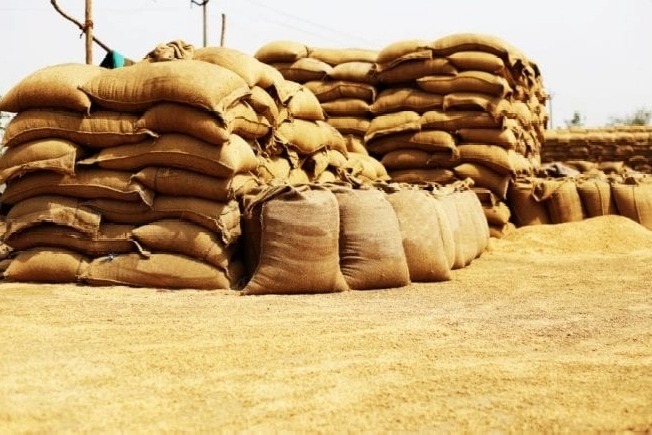Govt protects farmers' interest through wheat exports curbs: APEDA Chairperson

New Delhi: The government's move to restrict wheat exports last month has been primarily focussed on not just meeting domestic demand but also protecting the farmers income, APEDA Chairperson M. Angamuthu said on Saturday.
"India has kept its wheat export options open for those developing countries to meet their food security needs after restriction on shipment of wheat was announced last month. Requests from several countries for importing wheat from India are being processed at the government level," the Agricultural and Processed Food Products and Exports Development Authority (APEDA) chief said.
A significant chunk of commodity has been sold to private trade at much above Minimum Support Price (MSP). This was in view of the export demand after the war broke out between Russia and Ukraine, both major wheat producers and exporters, disrupting global supply chains.
"The decision to ban wheat export was taken to ensure the availability of wheat for the domestic supply chain. Sudden spurt in exports in April created concern over domestic price stability and supply that prompted the government to take the 'regulatory' measures like restricting wheat export," he said.
Angamuthu, however, maintained that higher remuneration to farmers did not result in higher wheat prices for consumers due to administrative measures like wheat export regulations and more availability of wheat for domestic supply chain.
"The Centre has been quite prudent in balancing the interest of the farmers and consumers in one go. The objective of Government of India's policy is that farmers could reap higher remuneration for their produce and the decision of the Centre helped a majority of farmers," he said, as per an APEDA statement.
It has been reported that during the current Rabi marketing season (2022-23), the farmers sold their produce at an average rate of Rs 2,150 per quintal against the MSP of Rs 2,015 per quintal.
"India has kept its wheat export options open for those developing countries to meet their food security needs after restriction on shipment of wheat was announced last month. Requests from several countries for importing wheat from India are being processed at the government level," the Agricultural and Processed Food Products and Exports Development Authority (APEDA) chief said.
A significant chunk of commodity has been sold to private trade at much above Minimum Support Price (MSP). This was in view of the export demand after the war broke out between Russia and Ukraine, both major wheat producers and exporters, disrupting global supply chains.
"The decision to ban wheat export was taken to ensure the availability of wheat for the domestic supply chain. Sudden spurt in exports in April created concern over domestic price stability and supply that prompted the government to take the 'regulatory' measures like restricting wheat export," he said.
Angamuthu, however, maintained that higher remuneration to farmers did not result in higher wheat prices for consumers due to administrative measures like wheat export regulations and more availability of wheat for domestic supply chain.
"The Centre has been quite prudent in balancing the interest of the farmers and consumers in one go. The objective of Government of India's policy is that farmers could reap higher remuneration for their produce and the decision of the Centre helped a majority of farmers," he said, as per an APEDA statement.
It has been reported that during the current Rabi marketing season (2022-23), the farmers sold their produce at an average rate of Rs 2,150 per quintal against the MSP of Rs 2,015 per quintal.